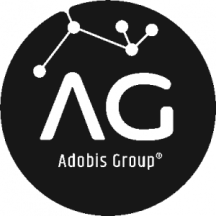
FAQ
FAQ
General
Can DataChain® integrate with my existing systems (ERP, CRM, etc.), and what types of connectors are available?
It offers a suite of connectors that use various protocols and drivers. DataChain® can read or capture data directly at its source without creating physical duplicates. If required, it can also extract data, timestamp it, and write it into its own environment.
Can I automate data preparation tasks with DataChain®?
Yes, the DC Maestro module enables the automation of tasks within DataChain®. It allows you to create workflows that sequence multiple data preparation actions. DC Maestro acts as the industrialisation module for business processes.
What types of analyses and/or features can I perform with DataChain®?
Its modular components cater to diverse use cases, allowing users to access data sources, build simple or advanced data pipelines, and operate in No-Code/Low-Code environments.
The DC Code module provides a secure coding environment for developing algorithms in multiple programming languages (Python, Java, Scala, R, etc.) tailored for Data Science and AI. It also integrates the Mlflow environment for streamlined model management.
The DC Maestro module orchestrates workflows, enabling the industrialisation of processes.
What visualisation tools are available in DataChain®?
DataChain® includes the HandleData module, which enables users to create dashboards with a variety of visual representations, such as:
Graphs (bar, line, area, bubble, scatter, gauge, pie, etc.).
Interactive timelines.
Multi-layered maps.
Media and document integration.
Link references.
The HandleData module also ensures full traceability and explainability across the value chain (lineage).
Can I use my own BI tools?
Yes, DataChain® supports integration with all BI tools. It enables communication through APIs (REST or OData), allowing organisations to use their preferred tools for data visualisation. However, DataChain® cannot guarantee full traceability or explainability of the global value chain (lineage) when external tools are used.
Can I securely share data with collaborators outside my organisation?
DataChain® provides fine-grained control over permissions on functions and data (down to column/row level).
How does DataChain® guarantee the security and confidentiality of my data?
The DataChain® solution is designed to integrate into any existing information system, connecting directly to directories or authentication providers used by organisations. It supports multiple protocols and methods to ensure full compliance with this requirement.
Can DataChain® connect directly to my authentication directory?
Yes, DataChain® is available in both cloud and on-premises modes. It can also be deployed in a hybrid configuration, depending on your organisation’s infrastructure.
Is DataChain® available in cloud or on-premises mode?
DataChain® is hosting-agnostic, meaning it can deployed with any hosting provider of your choice.
We offer managed hosting services through our team, but clients can also manage hosting themselves or entrust it to a third party. Importantly, DataChain® has no dependencies on any hyperscaler, providing organisations with total freedom of choice for hosting and deployment.
What are the hosting options available?
No, DataChain® has no dependencies on specific hosting providers. Clients maintain full control over deployment location and type, ensuring their sovereignty is fully respected.
Is DataChain® easy to use for non-technical users?
Yes, DataChain® is designed to be accessible and intuitive for non-technical users.
Thanks to its No-Code/Low-Code (NCLC) approach, any employee can use DataChain® effectively, regardless of their skill level. Training typically takes 2 to 5 days to enable full autonomy with the platform. Training typically takes 2 to 5 days to enable full autonomy with the platform.
How easy is it to learn and master DataChain®?
We provide training to help users get started with the platform. The pace of learning varies depending on a user’s familiarity with data concepts.
In addition to training, we offer support for building initial use cases, reviewing user projects, and ensuring best practices are followed. Our focus on real client data and needs allows organisations to quickly realise the benefits of DataChain®. The solution delivers a fast and measurable ROI.
Is there online documentation available?
Yes, the documentation is accessible directly from the DataChain® application and is regularly updated.
How is client support managed?
We use a ticketing system (JIRA) that enables clients to submit their requests. This system provides time-stamped traceability for request handling, responses, and resolution.
DataChain
What hosting options are available for DataChain® ?
DataChain® supports various deployment options, including SaaS, public cloud, private cloud, and on-premises configurations.
Is the processed data duplicated in the DataChain® environment?
No, DataChain® adheres to data virtualisation standards, ensuring data is not duplicated during operations. A temporary and secure data cache (persistence) can be generated when optimising processing pipelines.
Is it possible to extract data seen and read by the DataChain® platform?
Yes, DataChain® offers data extraction functionalities. Each extraction is time-stamped and saved as a source, creating a historical record of the original data.
Is the DataChain® solution dependent on a hyperscaler such as AWS, Microsoft, Google or others?
No, DataChain® is independent of hyperscalers, allowing organisations to choose their hosting provider with full confidence in scalability and adaptability over time.
What capacity does DataChain® have to make the processed data available?
DataChain® provides multiple options for sharing processed data:
Secure dynamic API generation using protocols like REST API and OData.
Export formats include CSV, TXT, JSON, XML, Parquet, and Excel.
Support for protocols like S3, HDFS, SFTP, and databases (SQL, NoSQL, graph).
Publication of dashboards and generation of Data Products.
Note: Inbound connectors can also function as outbound connectors.
Does the DataChain® platform offer a code mode development environment?
Yes, the DC Code add-on module provides a pure code environment for developers. It supports Python and other languages through JupyterHub notebooks, and includes MlFlow for streamlined model management, enabling custom algorithm development within a secure framework.
DC Code
How does DC Code integrate with the platform?
DC Code offers full, native integration with the DataChain® platform, ensuring consistent application of rights and permissions within the development environment.
Can DC Code environments be customised?
Yes, DC Code supports customisation of environments and interpreters to accommodate the varying needs of Python or R projects. It simplifies dependency management and allows the use of private repositories for Python and R packages.
How can I automate the execution of my notebooks?
Notebook execution can be automated through the DC Maestro module, integrating it as a workflow task. This ensures comprehensive management of processing chain automation.
DC Maestro
What does DC Maestro offer that other products do not?
DC Maestro simplifies data management in production by automating task execution. This reduces repetitive work, enabling teams to focus on high-value tasks. A notification system ensures disruptions are minimised by alerting you to issues promptly.
How does DC Maestro guarantee security?
DC Maestro leverages the rights and permissions defined in the connected products. Users access the same elements and functions permitted in their respective projects, ensuring consistent and secure operations.
Does using DC Maestro require any technical skills?
While built on advanced open-source technologies, DC Maestro’s interface and functions are designed for teams new to DataOps as well as those with extensive experience. This ensures accessibility for all skill levels.
Is it possible to trigger a DC Maestro pipeline from another environment?
Yes, DC Maestro pipelines can be triggered via secure service calls (API). These services require authentication and identification, ensuring secure integrations with other environments.
DC MarketPlace
How is the DC MarketPlace fed?
Each result produced by DataChain can be exposed in DC MarketPlace. Depending on the need , the producer will have the possibility to make each product available or not using several methods. For example the API expositions on various protocols, some dashboard publications or some data blocks in various format and of course any DataProducts.
Are the items in DC MarketPlace secure?
Yes, every item made available is secure. To access DC MarketPlace, consumers must authenticate themselves. They then have access to all the items available to them.
Can a single DC MarketPlace be fed by several DataChain Core modules?
Yes, as long as the authentication provider (directory) is shared by DataChain Core.
Can DC MarketPlace make results available in different formats?
Yes, producers can choose different formats to display their results in DC MarketPlace.
In DC MarketPlace. This means that consumers can consume results in the form of API, file, DataApp project envelope, etc.
